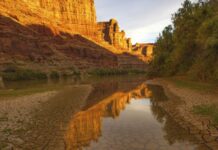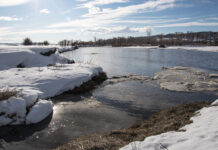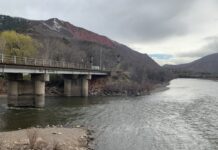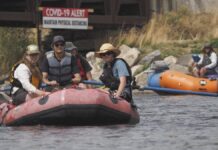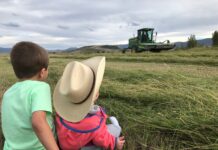How climate change is redesigning Canyonlands National Park
A warming climate has been linked to human activity around the world, and has affected the Colorado River System as well. The impacts are substantial, from reduced water flows, threats to indigenous species and the influx of new invasive species along the river system.
Crystal River Ranch near Carbondale seeks to preserve water rights tied to potential dams,...
Are junior water rights to an oversubscribed river enough to justify two reservoirs on a farm? One Colorado rancher is about to find out.
In post-shutdown world, new ultra-green water device helps weary eateries cut costs as they...
A new thawing technology aims to help restaurants cut their water use, reduce their operating costs and shrink their carbon footprint.
Yes, there is good news in dark times: A water dividend for the Colorado...
The water once used to cool coal-fired power plants could soon be available for other uses, even to help fill a new drought-protection pool in Lake Powell.
Water from retired coal plants could help endangered fish in the Yampa River
Endangered fish in the Yampa River may benefit as coal-fired power stations close in the next 10 to 15 years.
Critical April snowpack above average, but potential for dry spring causes concern
While snowpack and reservoirs are strong, forecasts for streamflows, which build as melting snow reaches streams, are expected to be below normal across southwestern and southeastern parts of the state.
Streamflow forecast down for Roaring Fork despite above-normal snowpack
Although snowpack in the mountains near Aspen is hovering above normal for this time of year, streamflows in the Roaring Fork River are predicted to be just 85% of normal for April.
Rafting season ready to launch, but COVID-19 worries running high
Colorado’s virus-related restrictions are forcing commercial rafting companies to create social distance on unruly rivers and face the potential for smaller crowds.
How a high-elevation irrigation study in Kremmling could help Colorado avoid future water shortages
A group of ranchers is helping scientists learn more about what happens to pastures that receive less irrigation water.
Drone videos and photos: Colorado River near Bond, Colorado December 2019
This page features drone footage and still imagery of the Colorado River near Bond, Colorado. From Kremmling to Dotsero, the Colorado River passes through rugged country, but a road...



